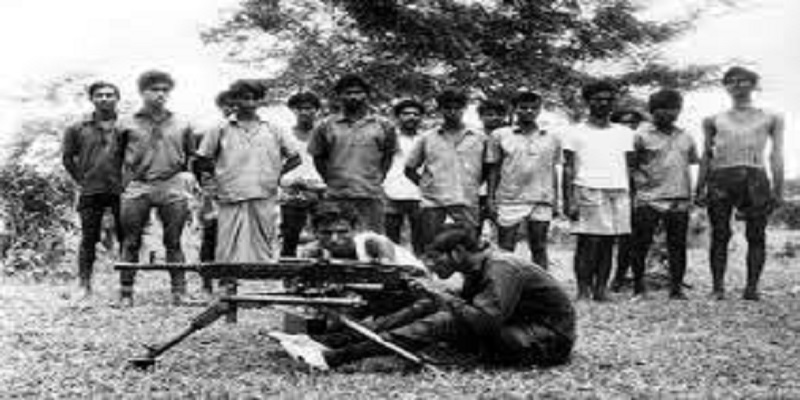Mukti Bahini Architects of Bangladesh's Liberation Struggle
Mukti Bahini, which translates to "Liberation Army" in Bengali, played a crucial role in the Bangladesh Liberation War of 1971. This armed resistance force was composed of Bengali military personnel, civilians, and students who sought to break free from the political and economic oppression imposed by West Pakistan (now Pakistan). The formation of Mukti Bahini marked a turning point in the struggle for independence and ultimately led to the creation of the sovereign state of Bangladesh.
The roots of the Bangladesh Liberation War can be traced back to the partition of British India in 1947, which created the separate nations of India and Pakistan. East Pakistan, located on the eastern side of the Indian subcontinent, was separated from West Pakistan by more than a thousand miles of Indian territory. Despite being geographically distant, East and West Pakistan were expected to function as a single state. However, the cultural, linguistic, and economic differences between the two regions led to deep-seated discontent in East Pakistan.
The people of East Pakistan predominantly spoke Bengali, while the ruling elite and official language in Pakistan were dominated by Urdu speakers from the western part of the country. The economic policies of the central government disproportionately favored West Pakistan, leading to economic disparities and a sense of neglect in the east. This discontentment eventually evolved into a demand for autonomy and equal representation.
In 1970, general elections were held in Pakistan, and the Awami League, led by Sheikh Mujibur Rahman, won a landslide victory in East Pakistan. The majority win gave the Awami League the right to form the government, but the ruling elite in West Pakistan was unwilling to transfer power. This led to a political impasse, and negotiations between East and West Pakistan broke down.
The situation escalated when the Pakistani military launched Operation Searchlight on March 25, 1971. The military crackdown aimed to suppress the growing movement for autonomy in East Pakistan. The brutal campaign resulted in widespread atrocities, including mass killings, rapes, and the displacement of millions of Bengalis. In response to this brutal crackdown, Mukti Bahini emerged as an armed resistance force, determined to fight for the liberation of Bangladesh.
Mukti Bahini was a heterogeneous force, comprising military personnel who defected from the Pakistani army, paramilitary units, and civilian volunteers. The leadership of Mukti Bahini included officers like Major Ziaur Rahman, Major Khaled Mosharraf, and Colonel MAG Osmani. These leaders played a pivotal role in organizing and coordinating the resistance efforts.
The guerrilla warfare tactics employed by Mukti Bahini were instrumental in challenging the superior firepower of the Pakistani military. The Mukti Bahini operated from both within Bangladesh and across the border in India, where they received support and training. India, witnessing the humanitarian crisis unfolding in East Pakistan, became increasingly involved in supporting the Mukti Bahini and providing refuge to millions of Bengali refugees who fled across the border.
The turning point in the conflict came in December 1971 when India intervened militarily in support of Mukti Bahini. The Indo-Pakistani War of 1971 lasted just 13 days but resulted in a decisive victory for India and the Mukti Bahini. On December 16, 1971, the Pakistani military in East Pakistan surrendered to the joint Indian and Mukti Bahini forces, leading to the creation of the independent state of Bangladesh.
Mukti Bahini's role in the liberation of Bangladesh was significant and showcased the power of a determined resistance force in the face of oppression. The sacrifices made by Mukti Bahini members and the people of Bangladesh during the struggle for independence are remembered as a symbol of resilience and the quest for self-determination.
The aftermath of the war saw the establishment of Bangladesh as an independent nation. Mukti Bahini's contribution to this historical event is commemorated annually on Victory Day, celebrated on December 16th in Bangladesh. The legacy of Mukti Bahini lives on as a symbol of the people's fight for freedom and their determination to overcome adversity.

